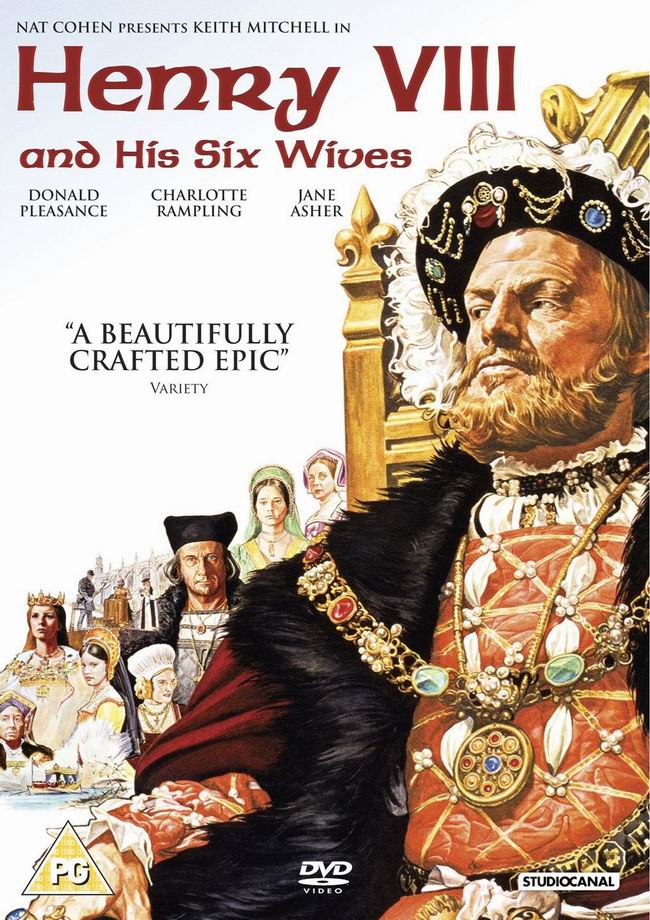 Elizabeth I (7 September 1533 - 24 March 1603) was Queen of England and Ireland from November 17, 1558 until her death. Sometimes called "The Virgin Queen", "Gloriana", or "Good Queen Bess", Elizabeth was the fifth and last monarch of the Tudor dynasty. The daughter of Henry VIII, she was born a princess, but her mother, Anne Boleyn, was executed three years after her birth, and Elizabeth was declared illegitimate. Perhaps for that reason, her brother, Edward VI, cut her out of the succession. His will, however, was set aside, and in 1558 Elizabeth succeeded her half-sister, the Catholic Mary, during part of whose reign she had been imprisoned on suspicion of supporting Protestant rebels.
Elizabeth I (7 September 1533 - 24 March 1603) was Queen of England and Ireland from November 17, 1558 until her death. Sometimes called "The Virgin Queen", "Gloriana", or "Good Queen Bess", Elizabeth was the fifth and last monarch of the Tudor dynasty. The daughter of Henry VIII, she was born a princess, but her mother, Anne Boleyn, was executed three years after her birth, and Elizabeth was declared illegitimate. Perhaps for that reason, her brother, Edward VI, cut her out of the succession. His will, however, was set aside, and in 1558 Elizabeth succeeded her half-sister, the Catholic Mary, during part of whose reign she had been imprisoned on suspicion of supporting Protestant rebels.The defeat of the Spanish armada in 1588 associated her name forever with what is popularly viewed as one of the greatest victories in British history. Within twenty years of her death, she was being celebrated as the ruler of a golden age, an image that retains its hold on the English people. Elizabeth's reign is known as the Elizabethan era, famous above all for the flourishing of English drama, led by playwrights such as William Shakespeare and Christopher Marlowe, and for the seafaring prowess of English adventurers such as Francis Drake and John Hawkins.
Towards the end of her reign, a series of economic and military problems weakened her popularity to the point where many of her subjects were relieved at her death. Elizabeth is however acknowledged as a charismatic performer and a dogged survivor, in an age when government was ramshackle and limited and when monarchs in neighbouring countries faced internal problems that jeopardised their thrones. Such was the case with Elizabeth's rival, Mary, Queen of Scots, whom she imprisoned in 1568 and eventually executed in 1587. After the short reigns of Elizabeth's brother and sister, her forty-five years on the throne provided valuable stability for the kingdom and helped forge a sense of national identity. (Wikipedia)
Florence Eldridge as Elizabeth in Mary of Scotland (1936), directed by John Ford and starring Katharine Hepburn as Mary Stuart and Fredric March as Lord Bothwell.
Flora Robson as the Queen in Fire Over England (1937) starring Laurence Olivier and Vivien Leigh, directed by William K. Howard. Robson would reprise her role in The Sea Hawk (1940).
Hollywood legends Bette Davis and Errol Flynn in The Private Lives of Elizabeth and Essex (1939) directed by Michael Curtiz, also starring Olivia De Havilland, Donald Crisp and Vincent Price as Sir Walter Raleigh. Nominated for 5 Oscars.
One of the great swashbucklers, The Sea Hawk (1940) stars Errol Flynn as Geoffrey Thorpe and Flora Robson as Queen Elizabeth, also starring Claude Rains, Brenda Marshall, Donald Crisp and Henry Daniell as Lord Wolfingham, directed by Michael Curtiz.
Jean Simmons as young Elizabeth, Deborah Kerr as Catherine Parr and Stewart Granger as Thomas Seymour in Young Bess (1953) directed by George Sidney.
The Virgin Queen (1955). Bette Davis stars as 'old' Elizabeth, her second stab at the role. Directed by Henry Koster and also starring Richard Todd as Sir Walter Raleigh.
Rod Taylor as Sir Francis Drake and Irene Worth as Queen Elizabeth in Seven Seas to Calais (1962) directed by Rudolph Mate.
Miranda Richardson as Queen Elizabeth in the classic comedy series Blackadder II (1986) starring Rowan Atkinson as Edmund Blackadder and Tony Robinson as Baldrick.
Cate Blanchett in her Oscar-nominated role, Elizabeth (1998) directed by Shekhar Kapur and also starring Geoffrey Rush, Joseph Fiennes and Richard Attenborough. Nominated for Best Picture.
Dame Judi Dench won the Oscar for Best Supporting Actress for her role as Queen Elizabeth in Shakespeare in Love (1998) directed by John Madden and starring Gwyneth Paltrow, Joseph Fiennes (as Shakespeare), Geoffrey Rush, Tom Wilkinson and Ben Affleck. The film also won Oscars for Best Picture and Best Actress (Paltrow).
Cate Blanchett received a second Oscar nomination for playing the Queen in Elizabeth: The Golden Age (2007) directed by Shekhar Kapur and also starring Geoffrey Rush, Rhys Ifans and Clive Owen as Sir Walter Raleigh. Oscar winner for Costume Design.
Joely Richardson as Young Elizabeth (top picture) and Joely's mother Vanessa Redgrave as Old Elizabeth in Anonymous (2011) directed by Roland Emmerich and starring Rhys Ifans, David Thewlis and Rafe Spall as William Shakespeare. Oscar nomination for Costume Design.
















































